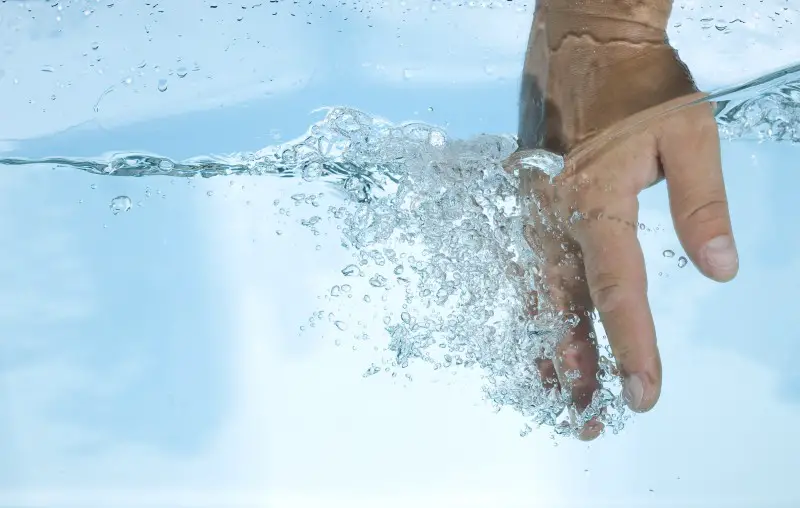What would you do if you couldn’t go for a swim or walk out in the rain? For a handful of people, that is a reality. They suffer from an extremely rare medical condition that seems almost unfathomable. They can’t get any water on their skin. It’s called aquagenic urticaria or what is an allergic reaction to water.
Aquagenic urticaria causes a rash or hives to break out on the skin when the person with the condition is exposed to any water. The lesions can be itchy and painful and can lead to headaches and a burning sensation on the skin. In more severe cases, drinking water can cause respiratory distress, difficulty swallowing, or wheezing. Unfortunately, there is no cure for the problem. Add into this that there is no known cause why it occurs.
The condition affects women more than men, but it can happen at any age and will occur no matter what the temperature of the water or the type of water the skin is exposed to. The skin shows a quick response when it is exposed to water, and a rash or hives can appear from within a minute to 15 minutes. The lesions then grow more painful as time passes. Others react to sweat or even tears. This condition is so rare that fewer than 100 cases have been diagnosed worldwide since it was first described in 1964, but it is believed that only about 30% of the cases have been actually documented.
Doctors diagnose aquagenic urticaria by doing a simple test where water is placed on the skin, either directly or with a wet paper towel, and observe the response after 30 minutes. They then try to determine if the reaction is because of the temperature of the water or if different water types will cause a reaction, such as tap, distilled, or saline. This helps them rule out a different kind of urticaria or skin rash.
While there is no cure for the problem, treatments are used to decrease the reaction when someone comes into contact with water. Oral antihistamines, topical corticosteroids, PUVA therapy, which combines the topical medication psoralen with ultraviolet A light, epinephrine, UV radiation, and barrier methods are all used to lessen the reactions. They are not similar in effectiveness from person to person, however.
People with aquagenic urticaria still have to live by drinking water, and they bathe just like everyone else. Still, even after a quick shower, the painful rash can develop no matter how quickly they towel off. There are other allergic reactions that are just as strange, such as exposure to any sunlight called polymorphous light eruption, but who would have thought that someone could be allergic to something in which our body is composed the most of — water.
Sources: NIH, Everyday Health, ABC News, MD-Health, Daily Mail UK, NIH


